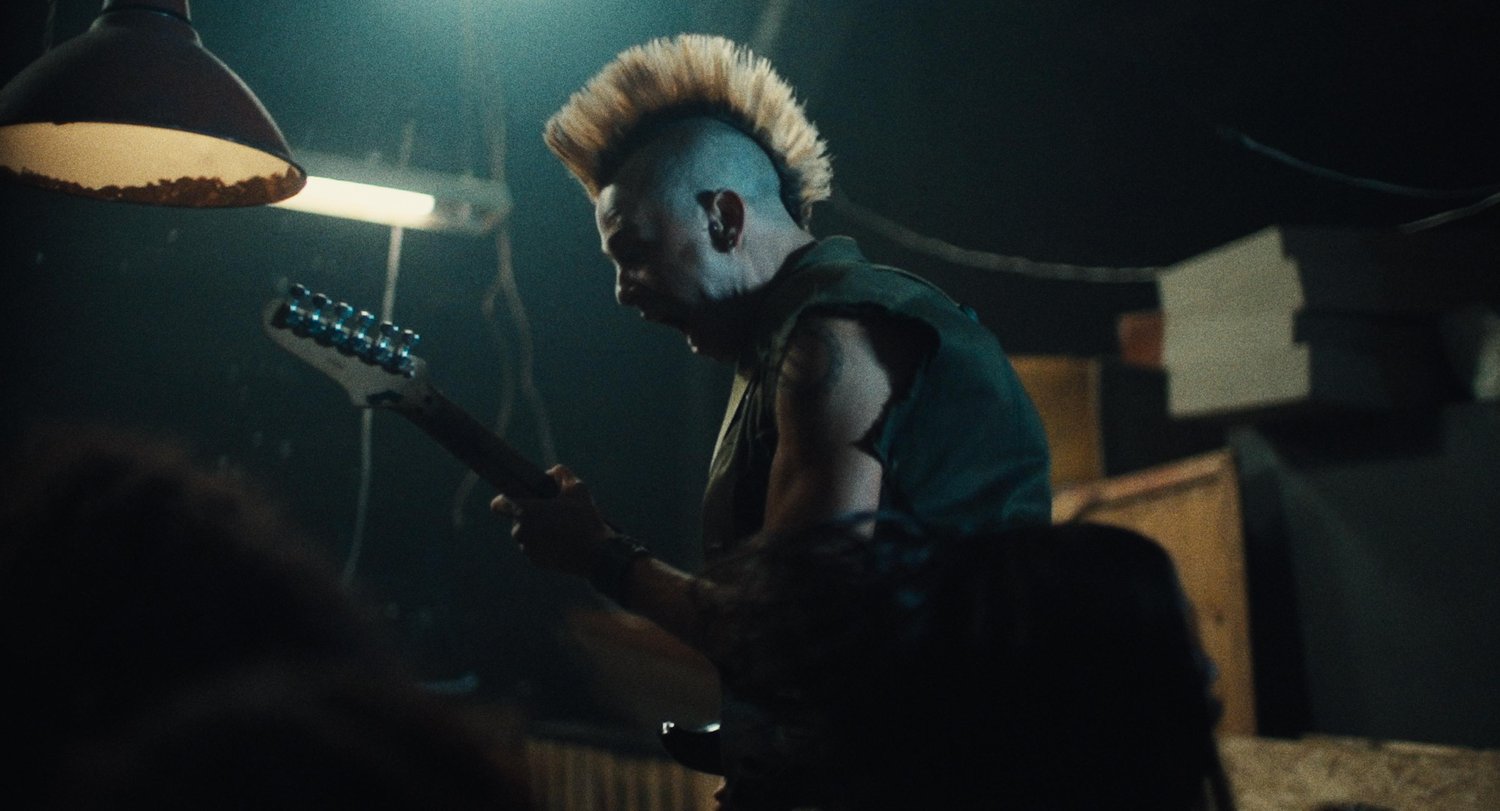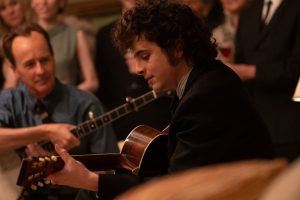Images courtesy of Wayward/Range and New Slate Ventures.
LOS FRIKIS– 4 STARS
Throughout many times in history including the current present day, different dominant social climates or ruling authorities in many parts of the world have sought to limit types of music or take it away entirely. Since the art of music falls under the universal human right that calls for freedom of opinion and expression, those enriched and inspired by it have sought to fight for its communal inclusion or continued existence. Those movements of anti-establishment behavior fueled by hope and resilience have linked music and defiance hand in hand. And that, so often, is simultaneously a beautiful and tragic thing. More often than not, music and revolution wins, but not without loss and defeat along the way. The audacious new foreign language film Los Frikis takes audiences into one such place and time.
LESSON #1: THE “LOS FRIKIS” CUBAN SUBCULTURE– In 1961, during the same year as the United States’ failed Bay of Pigs invasion, Cuban Prime Minister Fidel Castro outlawed rock music on the island as an act of music censorship and squelching potential revolutionist behavior. Popular Western music turned into “the music of the enemy.” By the 1980s and 1990s, a punk subculture grew of youths listening to faint radio signals from Florida and performing the music themselves underground. Embracing the full visage of black clothes, long mohawked hair, and DIY body art, the members were dubbed “Los Frikis,” intentionally drawn from the English “freak” pronunciation and the Spanish translation of “causing fright.”
Written and directed by the team of Tyler Nilson and Michael Schwartz responsible for the wonderfully poignant 2019 dramedy The Peanut Butter Falcon and based on true events, Los Frikis introduces viewers to two teenage brothers. Viva breakout Héctor Medina is Paco, the rambunctious older brother and full-throated participant in the Los Frikis movement. His quieter young brother is Gustavo, played by the meek and wide-eyed Eros de la Puente making his feature film debut. Matching the tried and true dynamic of many brothers, Gustavo follows and emulates Paco’s every activity and attitude as a willing yet untarnished disciple, as they live with extended family and work on the same sugarcane fields to eek out a living.
LESSON #2: THE PLIGHTS OF CUBA’S SPECIAL PERIOD– For Los Frikis members, it wasn’t only the taking on the look and absorbing the forbidden music, it was the strong anti-social behavior as a result of the poor socio-economic landscape. The Cuba of Paco and Gustavo seen in the film matches its 1990s Special Period of economic depression after the dissolution of the Soviet Union as one of the country’s biggest backers. Outside of killing an alley cat and risking a perilous raft exodus to America, Paco, Gustavo, and their mates do not often know when their next meal of sustenance is coming from, as they are surrounded by the downturn of socialism and the growing AIDS epidemic burning through the nation.
Constantly oppressed and separated from any upward success, their group comes to the sobering realization they would be better off getting daily square meals either in prison as a criminal or at quarantined santitoriums for the virally sick. Desperately willing to risk a long-term death sentence for short-term relief, these teens elect for that grievous second route and inject themselves with HIV-positive blood in order to get the medicial classification to be removed from the public. As shockingly dire as that measure is, these young men find an embracing setting and enter the best years of their lives.
LESSON #3: LIVING YOUR BEST LIVES– United at one sanatorium under the watchful care of Maria (Hit Man breakout Adria Arjona), Paco, his brother, and his band commune with fellow inflicted and like-minded detached citizens and find the closest thing to a utopia. Los Frikis cinematographer and his handheld camerawork bathe this period of the film and its Dominican Republic shooting locations with lush light. As long as they work chores and do their part to keep the place running, the Los Frikis are free to love and be themselves, music and all, backed by the score work of Gravity Academy Award winner Steven Price and the song selections of music supervisor Kier Lehman. The pungent anger and opposition in many of their hearts heals and fades for a time.
LESSON #4: LIVING AND DYING WITH HIV AND AIDS– The last sentence ends with the prepositional phrase “for a time” because of the medical reality haunting the sunlight and solace of Los Frikis. While these individuals have their artistic expression, their freedom still counts as isolated to the limited population of the commune and temporary because of their respective survival odds with HIV and AIDS. While it burns bright, any happiness they find is fleeting, meaning friends and family will live to see their loved ones succumb to a terrible illness before reaching middle-age in an oppositional country that does not value them to any degree.
Los Frikis swirls with sweeping emotional elements expanding from unbridled bliss to rebellious tragedy. In one regard, the film champions the undeniably deep emotional bonds people find in both sibling connection and musical inspiration. Eros de la Puentes occupies the coming-of-age subject discovering these twin radiances at a formative time in a beautiful way with sternly evolving naivety. Adria Arjona holds his proverbial hand to exude empathy and lift that elation further in a very affecting performance of her own. When Tyler Nilson and Michael Schwartz create and stage glimmers to celebrate, the film never discounts or underserves those moments.
Yet, the two filmmakers—in their second movie with some form of emancipation at its core—understand motivating moments show their height best when they are matched with, rise from, or collapse towards tangible lows. The shoulders carrying the bulk of that calamity are Héctor Medina’s. He offers an electric performance of wrought pain and belligerent rancor fitting the stormy hurricane of heart necessary for this era. Strong with the wisdom above and historical truth channeled through Medina, Los Frikis was unafraid to present the squalor the brothers rose from and, unfortunately, how AIDS would sever and silence any cultural growth or lasting personal legacies. The result is a difficult and no-less-impressive film that smashes the spirited human condition against aspects of fulfilling independence people should never take for granted.
LOGO DESIGNED BY MEENTS ILLUSTRATED (#1252)



